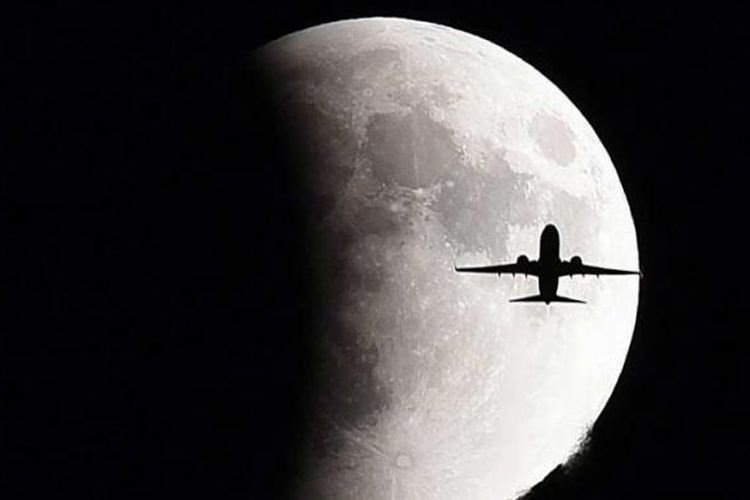 Photo by AP PHOTO / JEFF KNOX
Photo by AP PHOTO / JEFF KNOX
January 2018 seems to be a very special month in the phenomenon of our solar system. How not, there are two supermoon that can be watched with the naked eye in this month.
As reported previously, NASA (National Aeronautics and Space Administration) announced the phenomenon of "supermoon trilogy".
The three are the supermoon on December 3, 2017, then the second will appear January 1, 2018 night until 2 January morning, and last will appear on January 31, 2018.
Supermoon on January 1, 2017 referred to as Supermoon 'Wolves', the peak at 20:51 pm and the entire territory of Indonesia can see it.
While the Supermoon that will be the cover in January is called the Blue Supermoon. Although the name is a blue supermoon, but the month end of this month is not blue.
The name of the blue moon refers to the second full moon of the month. The second full moon will be very special, because it coincides with a total lunar eclipse, where the earth is positioned right between the sun and the moon. The color will resemble the blood red color.
This phenomenon is rare. Usually, the phenomenon of the full moon or supermoon only occurs once a month. But not for January and March 2018. Both have blue moons.
Reporting from Inverse, Sunday (31/12/2017), this is because of the difference between the sun calendar during the 365 days we have been following and the lunar calendar followed by many cultures. One round of lunar calendar is equal to 12 revolutions of the Moon (29.5 days). So a lunar year equals 354 days over 10 hours 49 minutes.
To align the two, astronomers use something called the 'Metonic cycle', a period of about 19 calendar years or 235 supermoon (equivalent to 235 lunar months). This is almost a general multiple of the year of the lunar sun and lunar year which is only a few hours apart.
That way, every 19 calendar year, new moon and full moon will appear on an adjacent date of the year.
The solar calendar and lunar calendar are not perfectly synchronized, as there are 235 full moons for 228 calendar months. Therefore, there are seven months within a period of 19 years of having two full moons in the same month.
If this year the phenomena of two supermoon exist in January and March, then for the next phenomenon will occur in the year 2037.